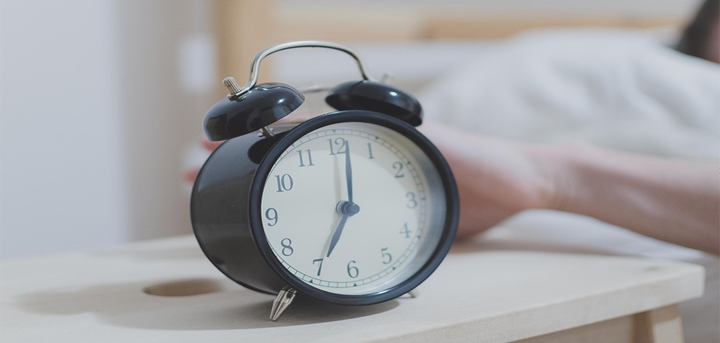World Sleep Day

Published on 15 March 2019 12:17 PM
World Sleep Day: How Can You Improve Your Sleeping Pattern?
The Friday of the second full week of March is celebrated internationally as World Sleep Day – an annual call to action on the various sleep concerns we can experience.
Researchers from the University of Kent last year found that our brain grows less sensitive to light as we age, meaning that our sleeping patterns can change a lot as we get older. Because of this, many older people can struggle to get to sleep.
There’s been a lot of debate over the past few years on whether older people might need less sleep than they have done previously, but according to sleep expert Ana Noia, whilst older people might only need around five to seven hours each night, it’s still recommended that we aim to sleep for somewhere between seven and eight hours. Sleep provides a vital role in maintaining our emotional and physical wellbeing, and poor sleeping habits have been associated with heart disease, diabetes, depression, obesity, memory loss, and high blood pressure.
Sleeping problems can be caused or exacerbated by a number of factors you might not have even thought about, so you might want to first consider eliminating the following to alleviate any issues you might be having;
- Poor sleep environment: We sleep best in rooms that are comfortable, dark, quiet, and somewhere between 18C and 24C.
- Screens before bed: The ‘blue light’ emitted by a lot of electronic devices (such as our phones, televisions, computers, or tablets), negatively impacts our ability to sleep. Experts recommend a half hour to hour without using such technology before going to bed.
- Menopause: During menopause, most women report that hot flushes during the night can interrupt their sleeping pattern. If menopause is affecting your ability to sleep, speak to your doctor about what they can do to help you.
- Lack of Exercise: There is a lot of evidence to suggest that those who engage in regular exercise sleep better than those who don’t. This doesn’t have to be particularly strenuous work – for information on how we can help you keep exercising, whatever your fitness level, you can contact our active age team on 0191 287 7027.
- Lack of sunlight: Melatonin in our bodies has a huge impact on sleep – to help regulate your melatonin, you can try taking in at least two hours of sunlight a day.
- Stress: There are a lot of potential causes of stress in later life – retirement, bereavement, and financial worries can all influence the amount of sleep we’re getting, and that in turn can cause even more stress. If you think that stress is having a significant impact on your sleeping pattern, try and talk out your worries with a loved one, or contact North Tyneside Talking Therapies to arrange appointments with a professional, in a judgement-free environment.
If you’re still struggling, the NHS has a number of suggestions to aid in better sleep. They advocate:
- A warm bath: A warm (not hot) bath before bed will get your body to a temperature that is ideal for sleep.
- Regular sleeping times: Whilst our schedules can sometimes be unpredictable, trying to sleep and wake at the same time each day can be really helpful.
- Sexual activity, or masturbation: Humans have evolved to become tired after sexual activity and masturbation.
- Reading a book: A book before bed has been shown to distract and relax the mind.
- Light Stretches: If you’re able, light stretches before bed can relax your muscles, and aid in sleep. Our Keep Fit page has information on yoga and tai-chi classes local to you.
- Keep a sleep diary: Sleep diaries can help us identify regular occurrences that might be impacting our sleep – a sleep diary will also help if you ever decide to visit a sleep expert. The NHS provide a downloadable sleep diary here.
If you’re struggling with sleep, it’s important to remember there are plenty of actions we can take to improve our sleeping habits, and minimise sleep disturbances, and your GP will be more than happy to help you if nothing else seems to be working. Above all, remember that that will be a solution that works for you.
